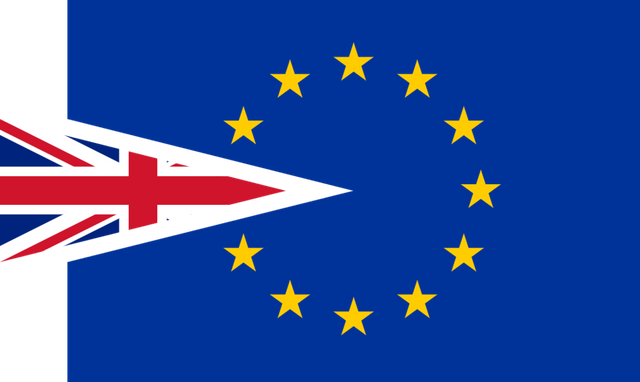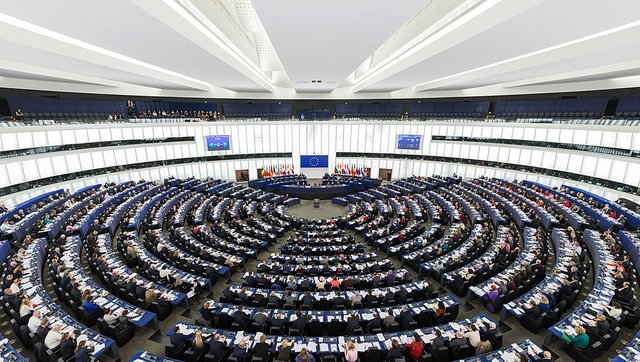The European Commission Brexit 'Contingency Action Plan'
Brexit: European Commission intensifies preparedness work and outlines contingency action plan in the event of a no deal scenario with the UK

Strasbourg, 13 November 2018
The European Commission has today published detailed information on its ongoing preparedness and contingency work in the event of a no deal scenario in the Article 50 negotiations with the United Kingdom.
First, the Commission has published a Communication, which outlines a limited number of contingency actions in priority areas that could be implemented if no agreement is reached with the United Kingdom. This follows a first preparedness Communication published on 19 July 2018.
Secondly, the College of Commissioners has adopted two legislative proposals to amend existing EU law in the area of visas and energy efficiency to take account of the UK's withdrawal. These targeted legislative adaptations are necessary, irrespective of the outcome of the withdrawal negotiations.
Thirdly, a notice has been published providing extensive information on the changes that will occur – in the event of no deal – for persons travelling between the EU and the UK, and vice versa, after 29 March 2019, or for businesses providing services in relation to such travel. It includes information on such things as border checks and customs controls, driving licences and pet passports, amongst others.
While the European Commission is working hard for a deal, and continues to put citizens first in the negotiations, the UK's withdrawal will undoubtedly cause disruption – for example in business supply chains – whether or not there is a deal. Contingency measures cannot remedy the full effects of this disruption. In the event of a no deal scenario, these disruptions will be even more significant and the speed of preparations would have to increase significantly. Contingency measures in narrowly defined areas may, exceptionally, be needed in order to protect the interests and the integrity of the EU.Communication: A Contingency Action Plan
Today's Communication provides details on the types of contingency measures that could be taken, should it appear likely that the UK will leave the EU in a disorderly manner. The Commission has identified priority areas where such measures could be necessary, given the significant impact a no deal scenario would have for citizens and businesses: residency and visa-related issues, financial services, air transport, customs, sanitary/phytosanitary rules, the transfer of personal data, and climate policy. Any contingency measures would only be taken in limited areas where they are necessary to protect the vital interests of the EU and where preparedness measures are not currently possible. They would be temporary in nature, limited in scope, adopted unilaterally by the EU and must remain compatible with EU law. Today's Communication also sets out the detailed legislative steps that should be taken should such contingency measures be deemed necessary.
As outlined in the Commission's first Communication of 19 July 2018, only a small part of preparations can be carried out by the EU institutions. Preparing for the UK's withdrawal is a joint effort at EU, national, regional and local levels, as well as by economic operators. While national measures by Member States represent a central element on contingency planning, the Commission stands ready to intensify its coordination of the work of Member States in order to ensure that the EU remains united and that any measures are applied consistently and coherently within the EU. In particular, the Commission will support Ireland in finding solutions addressing the specific challenges of Irish businesses.
Legislative proposals (energy efficiency & visa requirements)
Two legislative proposals were adopted today by the College of Commissioners:
- Energy efficiency: The Commission has today proposed to make a technical adaptation to the EU's energy legislation (the Energy Efficiency Directive) to take account of the UK's withdrawal. The EU's energy efficiency targets are based on EU28 energy consumption figures. Since the UK is leaving, it is necessary to adapt these consumption figures to reflect the EU at 27. This does not affect in any way the June 2018 political agreement on the EU's energy efficiency targets. The EU remains committed to its energy efficiency target for 2030 of at least 32.5%.
- Visas: The Commission has today proposed to amend the Visa Regulation. This would mean that when EU law no longer applies in the U.K, on 30 March 2019 in case of a no deal or at the end of the transition period in case of an orderly withdrawal, UK nationals would be exempt from any visa requirement for short stays in the EU. This is entirely conditional on the UK also granting reciprocal and non-discriminatory visa-free travel to EU citizens travelling to the UK. This is in line with the Commission's commitment to put citizens first in the negotiations with the UK.
Over the past year, the Commission has screened the entire Union acquis (body of EU law) to examine whether any changes are needed in light of the UK's withdrawal. To that effect, the Commission has adopted (and will adopt whenever necessary) specific, targeted legislative proposals to ensure that EU rules continue to function smoothly in a Union of 27 after the UK's withdrawal. Today's two proposals are part of this work. A full list of such legislative proposals is annexed to today's Communication.
The proposed measures are specific, limited and targeted at remedying the negative impact of a disorderly withdrawal or at enabling the necessary adaptation of the legislation.
Notice on Travelling between EU and UK after 29 March 2019
Today's notice outlines several areas where the UK's withdrawal from the EU will have a significant impact on the ease of travelling between the EU and the UK post-Brexit. In case of a no deal scenario, EU law will stop applying to the UK at midnight on 29 March 2019 – certain entry and exit checks at the EU's external border will be necessary. Goods entering the EU from the UK – in particular, of animal origin – may also be subject to customs controls and other related checks, controls and restrictions. Some licences and certificates, for example, drivers' licences or pet passports, may also no longer be valid.
Preparedness seminars
Over the past year, the Commission has held technical discussions with the EU27 Member States both on general issues of preparedness and on specific sectorial, legal and administrative preparedness steps. The Commission will step up its coordination and support efforts over the coming weeks, by organising a series of intensive preparedness seminars on a range of issues, including financial services, air transport, social security coordination, sanitary and phytosanitary requirements, amongst others.
Background
On 29 March 2017, the United Kingdom notified the European Council of its intention to leave the European Union. Unless a ratified Withdrawal Agreement establishes another date or the European Council, in accordance with Article 50(3) of the Treaty on European Union and in agreement with the United Kingdom, unanimously decides that the Treaties cease to apply at a later date, all Union primary and secondary law will cease to apply to the United Kingdom from 30 March 2019, 00:00h (CET) ('the withdrawal date'). The United Kingdom will then become a third country.
Stakeholders, as well as national and EU authorities, therefore need to prepare for two possible main scenarios:
- If the Withdrawal Agreement is ratified before 30 March 2019, EU law will cease to apply to and in the UK on 1 January 2021, i.e. after a transition period of 21 months.
- If the Withdrawal Agreement is not ratified before 30 March 2019, there will be no transition period and EU law will cease to apply to and in the UK as of 30 March 2019. This is referred to as the "no deal" or "cliff-edge" scenario.
The Commission's preparedness work is coordinated by the Commission's Secretariat-General.
For more information:
Text of the Communication
Notice on Travelling between EU-UK
Legislative proposal: Energy Efficiency
Legislative proposal: Visa Requirements
Factsheet: “Seven Things You Need To Know When Travelling between the UK and the EU after Brexit” (see attached)
1st preparedness Communication, July 2018
List of pending legislative initiatives on "preparedness"
The European Commission's Brexit Preparedness website (incl. "Brexit preparedness notices")
European Council (Article 50) - Conclusions of 29 June 2018
European Council (Article 50) Guidelines on the framework for the future EU-UK relationship (23 March 2018)
[Source: European Commission -/- Media Relations]
[Photo Credits: Photos inserted by Openeyesopinion.com (credits embedded)]
###



Source
Copying/Pasting full or partial texts without adding anything original is frowned upon by the community. Repeated copy/paste posts could be considered spam. Spam is discouraged by the community, and may result in action from the cheetah bot.
More information and tips on sharing content.
If you believe this comment is in error, please contact us in #disputes on Discord